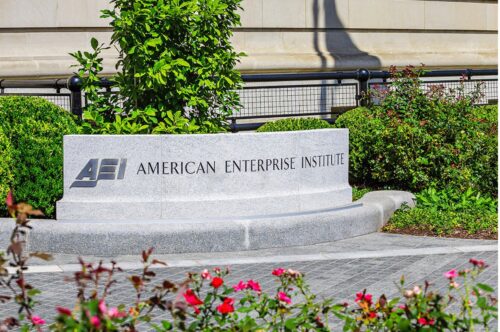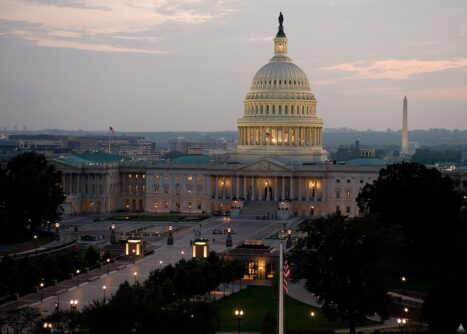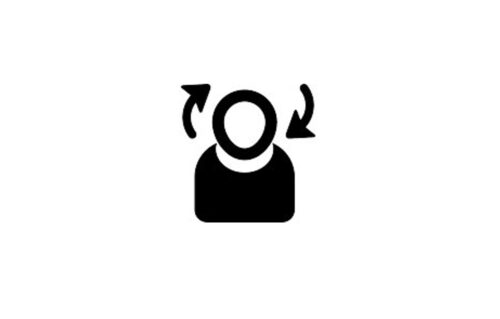Democratic self-governance is a rare and precious thing, all too readily surrendered by citizens to professional experts who are all too happy to take charge.
Editor's note: This post was originally a talk given at the Grant Managers Network conference in San Antonio, TX, on March 21, 2012.
My marching orders from the conference organizers went something like this: be provocative, but try not to be offensive.
I’ll certainly aim for the former, but I suspect, for some of you, I’m going to be the latter, and for that I apologize in advance.
Your conference theme for this year is, I see, “The Sky’s the Limit.” And your opening plenary, featuring John Colborn from the Ford Foundation, promised that he would tell you why – and I’m quoting here -- “grant managers are central to philanthropic effectiveness and (perhaps) the future of civilization.”
I’m going to talk a bit this morning about the role philanthropy might play in the future of American democracy – I’m not quite sure I can quite reach all the way up to the civilizational level.
And – fair warning, for those of you who are thinking you might want to slip out early to catch your flights -- I’m going to be a bit less optimistic than Mr. Colborn about philanthropy’s role in that future.
So your conference began on a theme of “the sky’s the limit,” and I’m afraid it may end on the theme of “this guy’s the limit.”
To ease into this rather large theme -- the role that philanthropy can play in preserving American democracy -- I’m going to describe an experience I had about twelve years ago, while I was a program officer at the Lynde and Harry Bradley Foundation in Milwaukee.
One very cold, wet, dismal, blustery spring evening in Milwaukee -- those of you who have been in the upper Midwest in early spring know that there’s a lot of redundancy in that description -- I was invited by a community organizer to join him and a group of a dozen or so parents and teachers in a cold, dismal, unheated field house in a park on the city’s south side.
They were parents and teachers who had just learned that the school superintendent had targeted their school for significant changes in curriculum, and they were very unhappy about it.
In most American school districts, that would have been the end of the story -- the parents would have had to just sigh and take what was dished out.
But Milwaukee has a pretty expansive choice and charter school law. And with the help of the organizer, these parents were going to do something unthinkable and outrageous.
They weren’t going to just take what was coming down at them from on high. They were going to start their own school.
For four hours that evening, these citizens discussed every aspect of what they wanted out of their own school -- what was to be taught, how it was to be taught, who they were going to hire to teach it.
At first, they were pretty timid and shy about it -- as if they were trespassing on forbidden ground.
After all, they had been told all their lives that education is an incredibly difficult and demanding thing, requiring all sorts of credentialed teachers and principals with PhDs and professional curriculum specialists.
They didn’t have any of that. They didn’t even know who to contact to turn on the heat in the field house.
But slowly, as the evening went on, they became less reserved and timorous, more engaged and vigorous, more expansive about what sort of school they wanted their own children to attend -- and what sort of school they were even at that very moment designing for their children.
By the end of the evening, they had established the outlines of what came to be known as the IDEAL school -- IDEAL standing for Individualized Developmental Approaches to Learning.
A dozen years later, it’s still going strong and enjoys a productive partnership with the YMCA in Milwaukee, with upwards of 200 students and a waiting list.
But even today, on their website, they recount the story of their humble and unpromising origins. As they say, “We started with no building, no students, and no name. What we did have was a vision.”
I came away from this evening feeling incredibly energized and excited, and I wasn’t quite sure why.
I’ve thought about it a lot over the years, and I’ve come to realize that it inspired me so deeply because I had been fortunate to witness the great and central act of American democracy.
It was the act of everyday citizens coming together around a shared vision and forging their own community to embody that vision.
From nothing except a shared purpose -- and in the face of all sorts of obstacles, ranging from the bureaucratic charter application process to the hostility of the teachers unions to the scorn of the education professionals telling them that parents know nothing about teaching children -- they nonetheless created a nonprofit organization to solve their own problems their own way.
Now, I knew about this particular American quality in theory because I, like many of you here today, had read Alexis de Tocqueville’s Democracy in America.
We learn therein that Americans are particularly gifted at establishing their own local organizations to solve their own problems, unlike Tocqueville’s French compatriots, who, as he puts it, tend to fold their arms and wait for government to show up to solve problems for them.
But he warns us that getting citizens to pay attention to the larger affairs of the community is very difficult, even in America. The science of association or of community-building, he warns us, is rare and difficult to sustain.
First, because we democratic individuals tend to be selfish and materialistic and prone to pursue our own immediate self-interest without regard for others.
Second, because narrowly self-centered individuals are all too willing to surrender to others the fuss and bother of governing.
The experts in governing, in turn, would just as soon do without all those independent and obstreperous civic associations that only clutter up the orderly, top-down delivery of services.
Well, all that I knew by way of theory. But it didn’t prepare me for how awe-inspiring it would be to witness first-hand the essential Tocquevillian act of citizens gathered in a community to take back the power from centralized bureaucracy and become masters of their own future once again.
Don’t mistake this for “volunteering” or “service.” This was not nicey-nice giving blood at the Red Cross.
On the issue of utmost importance to these parents -- the future of their children -- they were able to act, for the first time in their lives, as genuine citizens of the great American democracy.
A friend of mine who’s a labor organizer described it well: in this field, there is nothing quite like seeing citizens coming into the first realization of their own agency, and living into their ability to control their own lives.
American civil society has over the centuries been the arena within which everyday citizens come to realize their own democratic agency, no matter how marginal, neglected, or oppressed they may otherwise have been in this imperfect democracy of ours.
By forming associations within civil society -- what we would later call nonprofits -- despised religious sects organized their own self-supporting communities. Abolitionists organized against the slave trade.
Freed and self-liberated slaves established their own churches, lodges, and burial societies.
Powerless and voteless women came together in powerful reform movements to reshape the workplace for women and children, and earn for themselves the right to vote.
Fraternal and ethnic associations formed among poor laborers to insure provision for their own widows and orphans. The African-American church worked to undermine and finally to topple Jim Crow.
When we in philanthropy make grants to nonprofits, it’s essential for us to remember that we hold within our grasp -- we play a part in the fates of -- the groups that Americans have formed over two centuries to give form and substance to the precious and rare act of self-governance. This is an awesome responsibility indeed.
Now, we don’t often think of our grant-making that way, because the nonprofits we typically see in our everyday work don’t look like passionate, self-governing democratic communities.
Or rather, they don’t look that way, given the way we look at them.
What we tend to see, no matter the specific subject area, are organizations designed to deliver professional services to clients -- health care to patients, jobs to applicants, artistic performances to audiences, and so forth.
And when it comes to service delivery, we tend to have certain very firm notions of what’s good.
Delivery should be efficient, effective, best-practice, up-to-date, professional, comprehensive, systematic, streamlined.
These are all adjectives, incidentally, that I gleaned just from the first few pages of your conference program.
Now, this is hardly a new state of affairs. It was inaugurated by the first large American foundations -- Rockefeller, Carnegie, and Russell Sage -- at the turn of the twentieth century.
In the view of these donors, we needed to get away from the piecemeal, partial, parochial approach of mere charity, which just sought to put Band-Aids on problems, and turn instead to the systematic, efficient, wholesale solution of public problems once and for all, by getting at their root causes.
The way to do that was to take our public affairs out of the hands of everyday citizens, and put them instead into the hands of professional experts.
They were being trained in the new natural and social sciences, which would allegedly enable them to reach and alter root causes.
Our problems would now be addressed not by citizens clumsily working out superficial remedies with each other in local association, but rather by credentialed experts, smoothly delivering therapeutic services to passive, grateful clients.
In other words, our first major foundations seemed to encourage precisely the short-circuiting of democracy so much feared by Tocqueville -- the displacement of the everyday citizen from democratic self-governance by centralized bureaucratic service providers.
In recent years, this displacement has been further encouraged by the nonprofit sector’s enthrallment to the corporate model. You’re all familiar with this powerful urge to make nonprofits more business-like.
We say that a nonprofit needs a business plan; it should consider contributions “investments;” it needs to be more entrepreneurial; it needs to focus on generating fees for service; it needs to describe outcomes with clear, concise measurements, just like the profit and loss statements of the business world.
This approach to philanthropy has only been reinforced over the past few years by the entry of so many newly wealthy entrepreneurs into the world of philanthropy.
Consider this comment by Charles Bronfman and Jeffrey Solomon in their recent book The Art of Giving, which captures perfectly this new philanthropic attitude. As they put it:
[These new] donors . . . are ready to make use of the sophisticated management instruments they have developed in their business life to achieve greater performance in this new, more challenging arena. . . .[T]hey give purposefully, think strategically, rely on measurements and regular monitoring. . . .
Nonprofits should be run just as crisply as for-profits. Meetings should start on time and end on time too. They should not be social gatherings that drag on endlessly for no purpose.
I particularly like that last comment -- about the crisp conduct of nonprofit meetings -- because it captures perfectly the two contrasting ways to look at a nonprofit.
Are nonprofit meetings just obligatory calendar entries, occasions to clip through an agenda briskly and efficiently, glancing at the performance dashboard, digesting data, and peering at PowerPoints?
Or are they not in fact sometimes precisely social gatherings -- leisurely opportunities for citizens to come together and socialize, to form deeper personal bonds of friendship and trust, to create a community, as well as to conduct business?
Is a nonprofit just another business, or is it not also often an instrument of democratic self-governance?
Beginning with Robert Putnam’s monumental volume of research, entitled Bowling Alone, published a decade ago, philanthropy has been concerned about the issue of civic disengagement in America -- the fact that citizens are becoming far less involved with each other in the sort of social and political undertakings that Tocqueville once described as the very essence of the American character.
Indeed, there’s even a thoughtful foundation affinity group, Philanthropy for Active Civil Engagement, or PACE, the purpose of which is to attempt to reverse that trend.
But the irony is that philanthropy itself may be contributing to that very disengagement from civic life. That is precisely the cost of regarding nonprofits primarily as efficient and effective service-providers, rather than as instruments of democratic self-governance.
When citizens undertake to do something for themselves, it can of course be amateurish, time-consuming, sloppy, contentious, and clumsy.
But in the final analysis, what they’ve achieved is likely to endure and to succeed, because it’s rooted in the opinions and values of the citizens themselves, those whom the programs are meant to serve.
More important, as Tocqueville told us, no matter how awkward the outcomes, this approach also serves to draw people out of the isolated, individualistic shells into which they’re likely to retreat in materialistic times.
It engages them in the always messy and tumultuous processes of self-government.
It may be frustrating and exasperating to those who prefer crisp, business-like meetings. But this grittiness and tumult are ultimately essential ingredients of the humanizing and democratizing process of self-government.
If we’re only interested in efficiency, then indeed it may be better to resort to professional experts, who have a neatly organized menu of standard operating procedures to deliver services smoothly and quickly. But all too often, without the engagement of the citizens affected, those services come to be resented and resisted as outside impositions, rather than native-grown products of self-government.
Furthermore, and more important, by employing experts to undertake the tasks of democratic government, we’ve relieved citizens of the need to engage with each other and to work out their differences in their own messy and amateurish ways.
That can only spell the end of democratic self-governance.
Now, consider all the standards and practices that philanthropy increasingly demands of the nonprofit world:
Ever longer and more elaborate application processes;
Ever more burdensome reporting requirements;
Ever more complicated ways of describing goals through logic models and theories of change;
Ever more sophisticated modes of measuring outcomes;
Ever more elaborate ways to evaluate results.
All of these foundation demands flow naturally from the view that nonprofits should be more businesslike.
And they flow naturally from the view that foundations aren’t there just to assist nonprofits in putting Band-Aids on problems, but are rather driving scientifically toward root cause solutions of those problems.
And these demands are perfectly amenable to the large, sophisticated nonprofits whose primary purpose is indeed to deliver professional services to passive clients.
We’ll hear no complaint from them about this state of affairs. As part of their elaborate expert apparatus, they employ professionals whose entire purpose it is to address the needs and desires of other professionals employed by foundations.
But for the smaller nonprofit launched by everyday citizens who urgently need to solve some immediate problem in their own backyard -- for the organization that would serve to convert passive clients into active citizens -- all of these requirements put out of reach any hope for a grant, thereby ruling out philanthropy as a solution to the problem of civic disengagement.
So the nonprofits that we foundations see do indeed all tend to look like efficient service-deliverers, because that’s precisely what our own requirements and procedures encourage or even demand. At the same time, they serve to discourage or even filter out altogether non-professional, amateur, self-governing democratic associations.
Now, the sad thing is that all of this is so unnecessary, in the world of philanthropy.
For government, of course there must be strict requirements for soliciting and reporting on grants, because it’s the taxpayers’ money. If a nonprofit runs a business or sells its services, of course we expect certain corporate-like practices, to avoid fatal mismanagement. But for the foundation, there are no such strictures.
Philanthropy has extraordinary, perhaps unparalleled, freedom to do with its resources whatever it wishes, within some legal boundaries that are pretty generous and undemanding.
It would be entirely possible for a foundation to announce today that it was not going to fund delivery of professional services anymore, with all the burdensome requirements that entails. Instead the foundation could announce as its purpose the cultivation of self-government among democratic citizens. It would not put out RFPs or delineate narrow program areas or create its own nonprofit subsidiaries to carry out its own programs. It would rather announce that funding is available for whatever efforts citizens come up with in the give and take of immediate civic deliberation.
The application process would be brief; the reporting requirements kept to the legal minimum; and the grant would be for general operating support, renewable for as many years as the foundation and the nonprofit see fit to cooperate.
As I say, foundations have the freedom to undertake this sort of radically free-form and democratic grant-making.
But as with Steve Martin in the old “Saturday Night Live” sketches, at the end of this exuberant thought experiment, I’m afraid the answer of philanthropy will be -- “nah.”
Short of that, I ask all of you, as you leave this conference armed with lots of new information and skills in grant management, to remember this: the organizations you deal with every day once were, and potentially still can be, the vessels by which Americans have tried to govern themselves for more than two centuries.
As Tocqueville argued, democratic self-governance is a rare and precious thing, all too readily surrendered by citizens to professional experts who are only too happy to take charge.
Given the institutional requirements of government and business, they aren’t likely to care too much about, or to tend to the preservation of, the democratic heart of the nonprofit sector.
Only philanthropy has the freedom and the mandate to do so. In that sense, you may very well hold within your hands the future of American democracy, if not civilization itself.







Timing of my flight prohibited me from hearing the talk first hand so I’m thankful it was published here. What Bill said does provide food for thought. It supports a comment I’ve made more than I can to count…why must everything be so difficult and complicated? He seems to lean toward the feeling that the non-profit “business” has turned into just that, a “business”. I can see it from both perspectives; the economy has caused many to examine their giving and as a result, some are changing how much and where they are giving. I can understand how then the grant is considered an investment. Lots to think about…